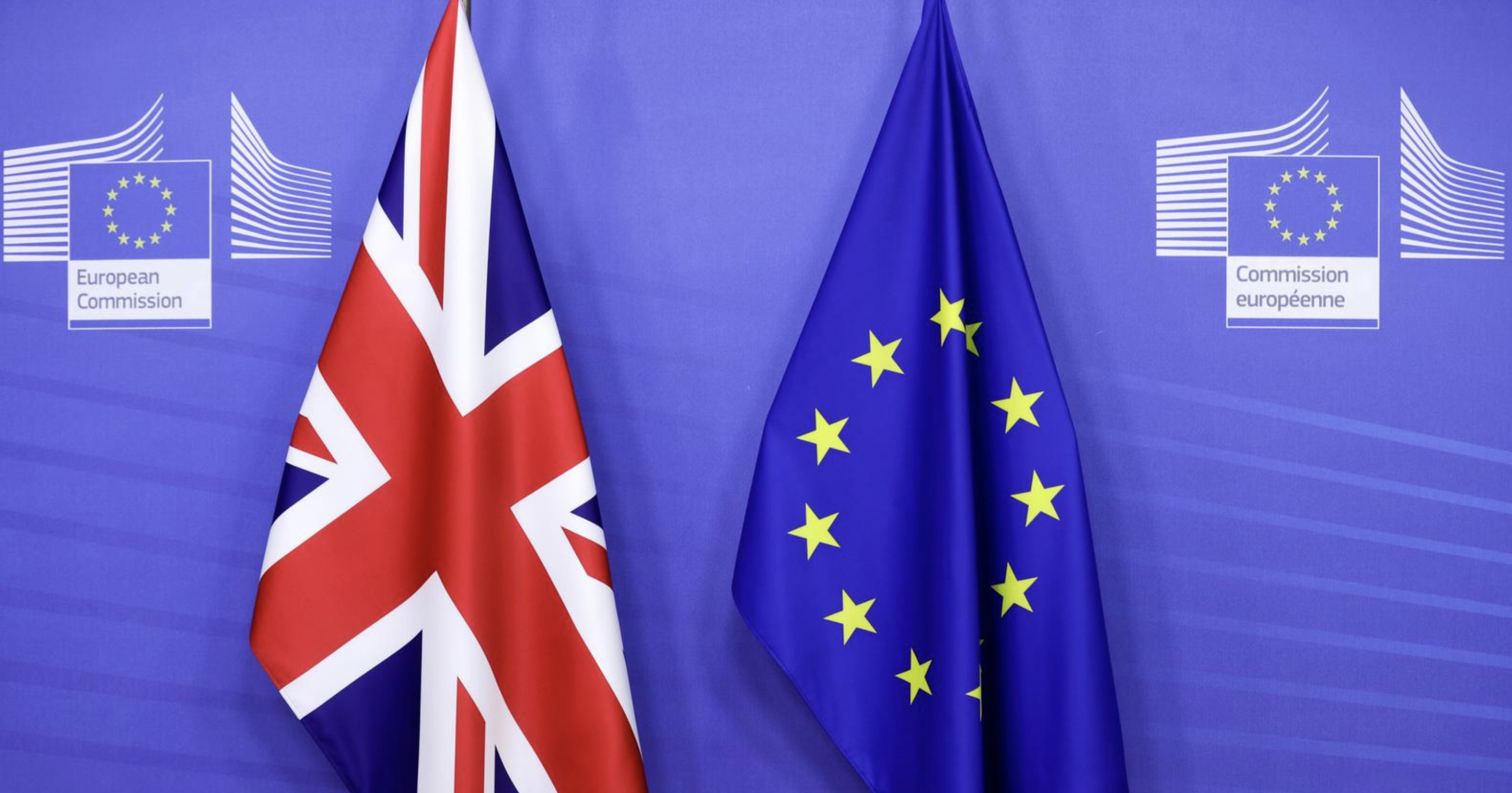
- The UK and the European Union have struck a tentative free-trade deal that should avert economic chaos on New Year’s.
The deal, reached after nine tough months of negotiations, would ensure Britain and the 27-nation bloc can continue to trade in goods without tariffs or quotas after the UK breaks fully free of the EU on New Year's Day.
"We have taken back control," declared British Prime Minister Boris Johnson, who posted a picture of himself, beaming with thumbs up.
Britain's parliament will vote to approve a trade deal with the European Union on December 30, Prime Minister Johnson said following the agreement with Brussels.
Relief was palpable on all sides. "It was a long and winding road but we have got a good deal to show for it," European Commission President Ursula von der Leyen said. "It is fair, it is a balanced deal, and it is the right and responsible thing to do for both sides."
Tense and often testy negotiations gradually whittled differences between the two sides down to three key issues: fair-competition rules, mechanisms for resolving future disputes, and fishing rights. The rights of EU boats to fish British waters was the last obstacle to be resolved.
However, key aspects of the future relationship between the two sides remain unsettled.
Johnson had insisted the UK would "prosper mightily" even if no deal were reached and the UK and the EU had to reinstate tariffs on each other's goods. But his government acknowledged that a chaotic exit was likely to bring gridlock at Britain's ports, temporary shortages of some goods and price increases for staple foods. The turmoil could cost hundreds of thousands of jobs.
The EU has long feared that Britain would undercut the bloc's social, environmental and state aid rules after Brexit and gain a competitive advantage over the EU. Britain denies planning to institute weaker standards but said that having to continue following EU regulations would undermine its sovereignty.
A compromise was eventually reached on the tricky "level playing field" issues.
The economically minor but hugely symbolic issue of fishing rights came to be the final sticking point, with maritime EU nations seeking to retain access to UK waters where they have long fished and Britain insisting it must exercise control as an "independent coastal state."
It has been 4 1/2 years since Britons voted 52-48 per cent to leave the EU and - in the words of the Brexiteers' campaign slogan - "take back control" of the UK's borders and laws.
It took more than three years of wrangling before Britain left the bloc's political structures on January 31. Disentangling the two sides' economies took even longer.
The UK has remained part of the single market and customs union during an 11-month post-Brexit transition period. As a result, many people so far have noticed little impact from Brexit.
On January 1, the breakup will start feeling real. Even with a trade deal, goods and people will no longer be able to move freely between the UK and its continental neighbors without border restrictions.
EU citizens will no longer be able to live and work in Britain without visas - though that does not apply to the more than 3 million already doing so - and Britons can no longer automatically work or retire in EU nations. Exporters and importers face customs declarations, goods checks and other obstacles.
The UK-EU border is already reeling from new restrictions placed on travelers from Britain into France and other European countries because of a new and possibly more contagious variant of the coronavirus sweeping through London and southern England.
Thousands of trucks were stuck in traffic jams near the port of Dover on Wednesday, waiting for their drivers to get virus tests so they could enter the Eurotunnel to France.
British supermarkets say the backlog will take days to clear and there could be shortages of some fresh produce over the holiday season.
Despite the deal, there are still unanswered questions about huge areas, including security cooperation between the UK and the bloc and access to the EU market for Britain's huge financial services sector.







No comments :
Post a Comment